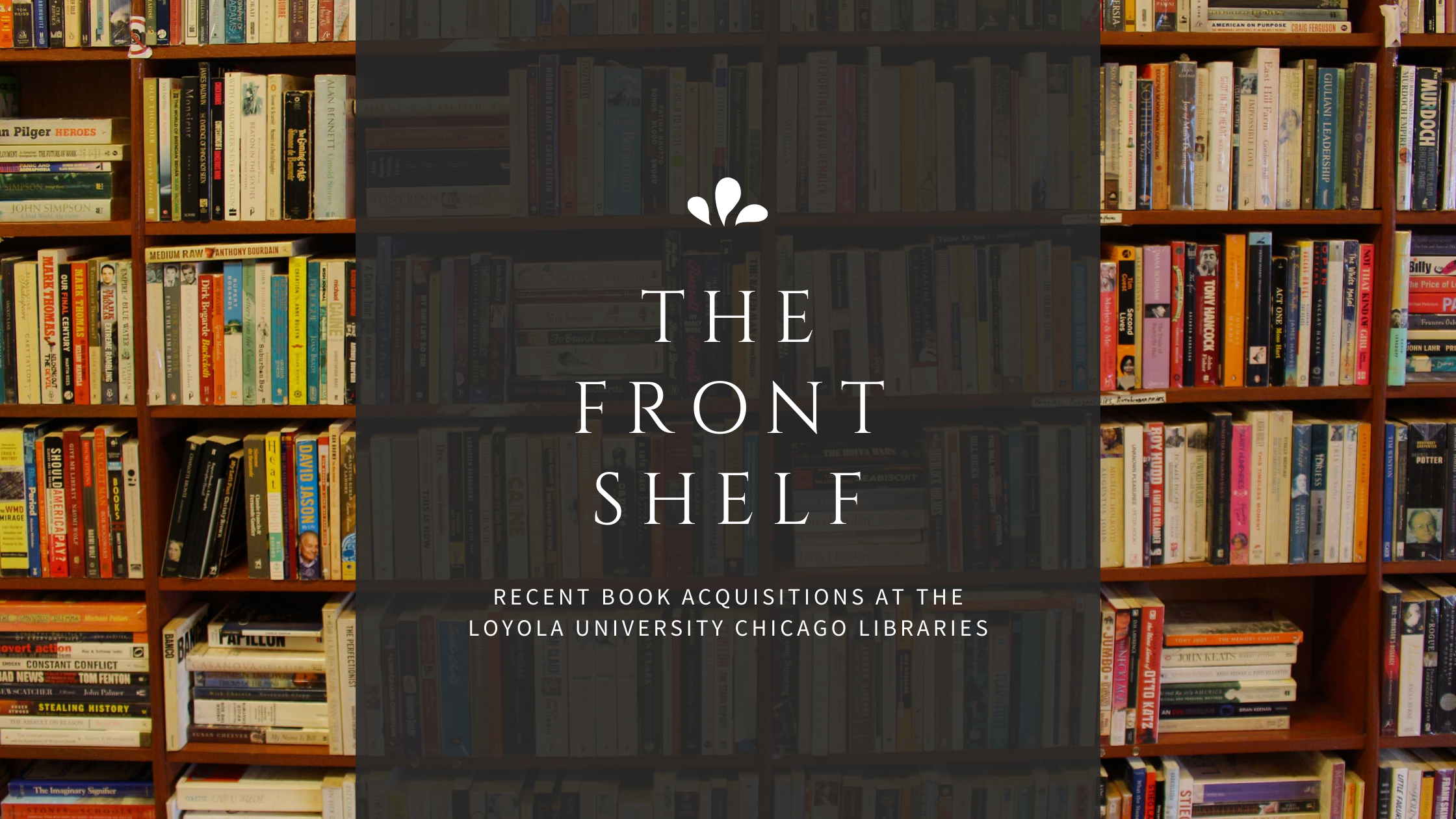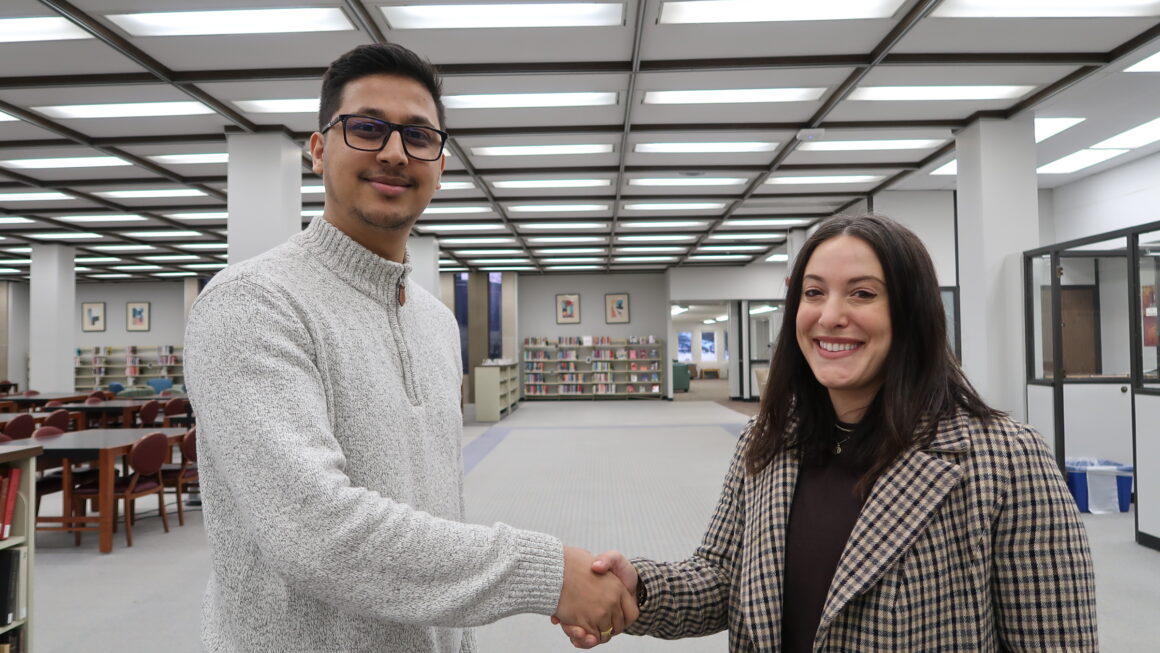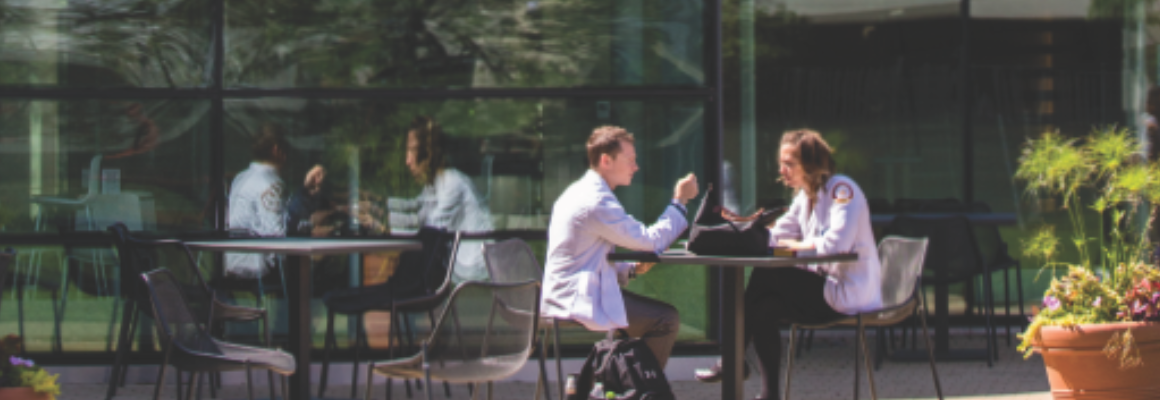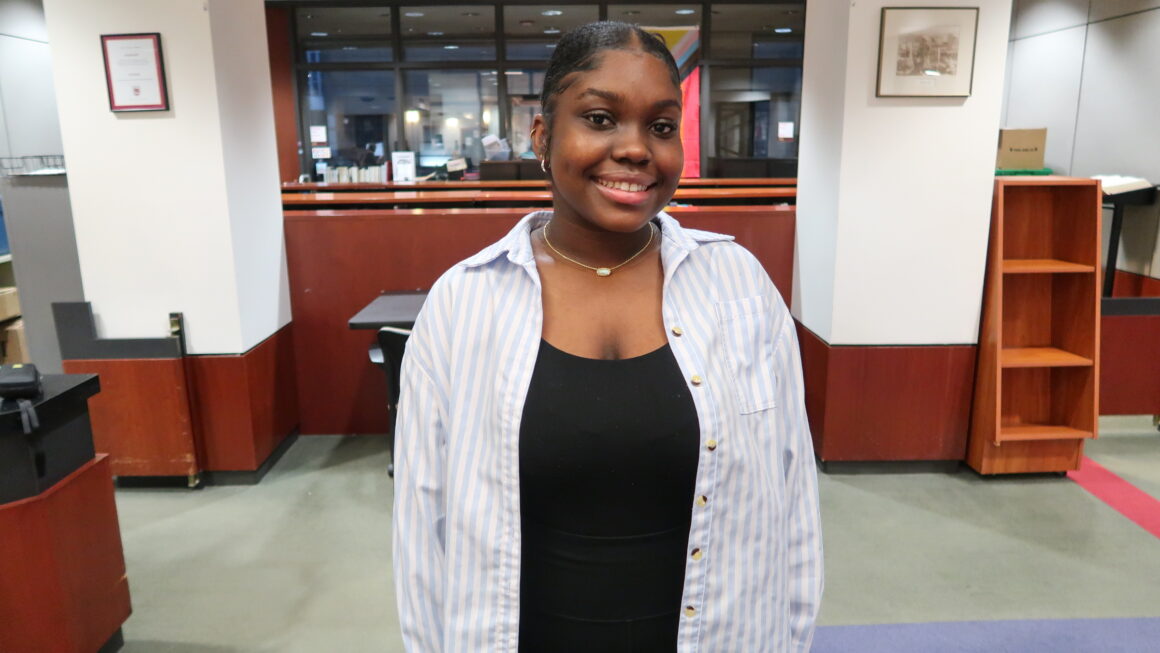Monday, May 3rd, 2021
Each month, we will post a selection of recently-acquired books, from new releases to old classics, which have been added to our catalog and are available for use by the Loyola community. This series is inspired by The Seminary Co-op’s “The Front Table” publication: https://www.semcoop.com/.
This month’s edition includes ebooks only. Links are included in the descriptions.
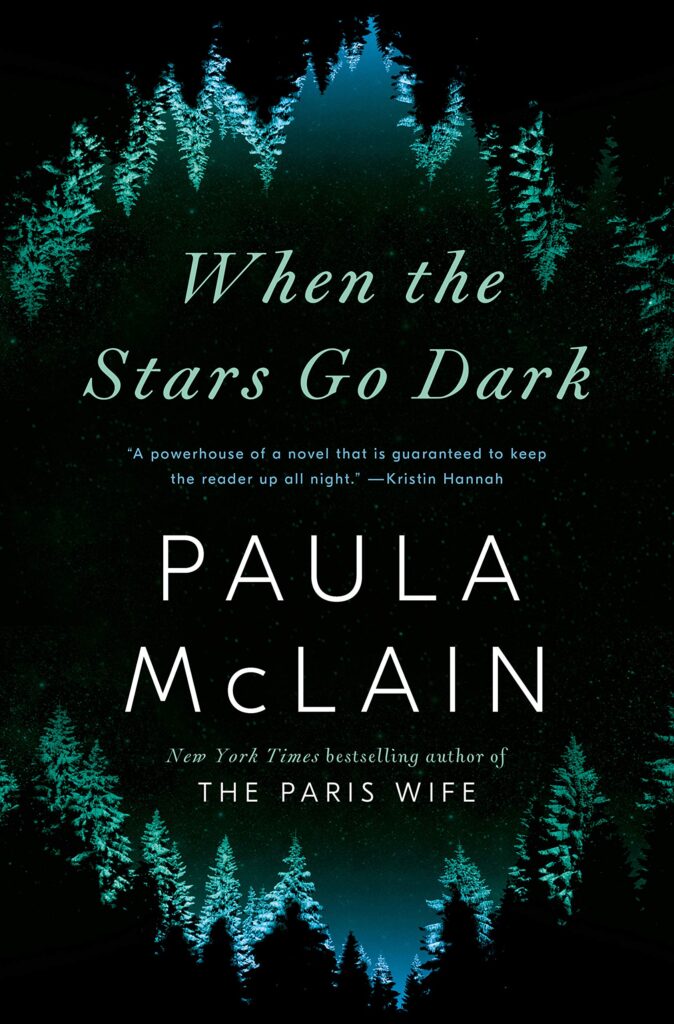
McLain, Paula. When the Stars Go Dark : a Novel . First edition., Ballantine Books, 2021.
Anna Hart is a seasoned missing persons detective in San Francisco with far too much knowledge of the darkest side of human nature. When tragedy strikes her personal life, Anna, desperate and numb, flees to the Northern California village of Mendocino to grieve. She lived there as a child with her beloved foster parents, and now she believes it might be the only place left for her. Yet the day she arrives, she learns that a local teenage girl has gone missing. The crime feels frighteningly reminiscent of the most crucial time in Anna’s childhood, when the unsolved murder of a young girl touched Mendocino and changed the community forever. As past and present collide, Anna realizes that she has been led to this moment. The most difficult lessons of her life have given her insight into how victims come into contact with violent predators. As Anna becomes obsessed with saving the missing girl, she must accept that true courage means getting out of her own way and learning to let others in. Weaving together actual cases of missing persons, trauma theory, and a hint of the metaphysical, this propulsive and deeply affecting novel tells a story of fate, necessary redemption, and what it takes, when the worst happens, to reclaim our lives—and our faith in one another.
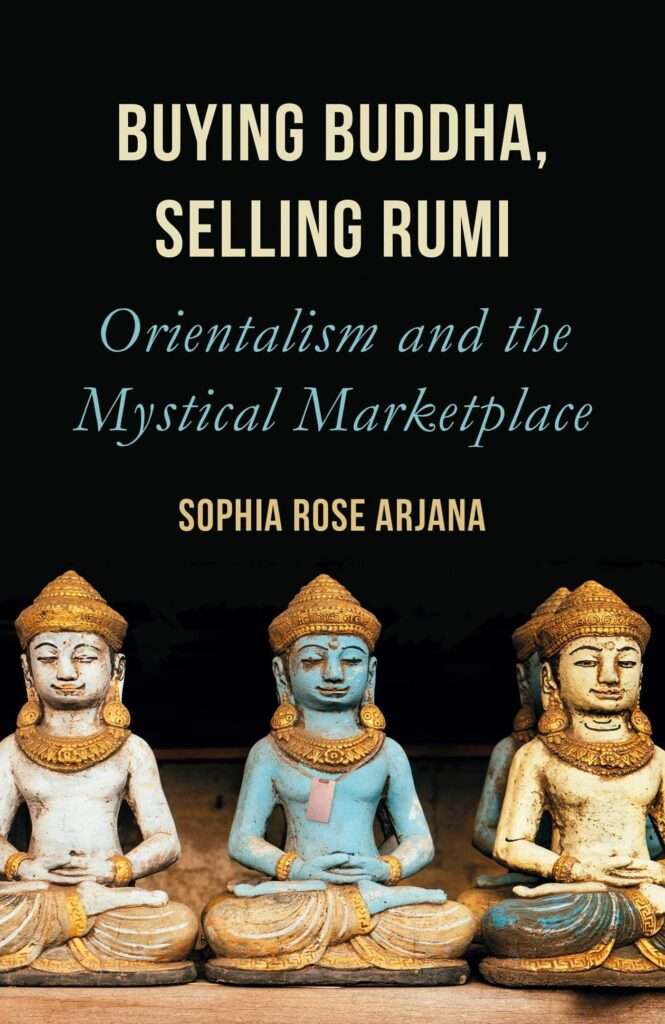
Arjana, Sophia Rose. Buying Buddha, Selling Rumi : Orientalism and the Mystical Marketplace . Oneworld Academic, 2020.
From jewelry to meditation pillows to tourist retreats, religious traditions – especially those of the East – are being commodified as never before. Imitated and rebranded as ‘New Age’ or ‘spiritual’, they are marketed to secular Westerners as an answer to suffering in the modern world, the ‘mystical’ and ‘exotic’ East promising a path to enlightenment and inner peace. In Buying Buddha, Selling Rumi, Sophia Rose Arjana examines the appropriation and sale of Buddhism, Hinduism and Islam in the West today, the role of mysticism and Orientalism in the religious marketplace, and how the commodification of religion impacts people’s lives.
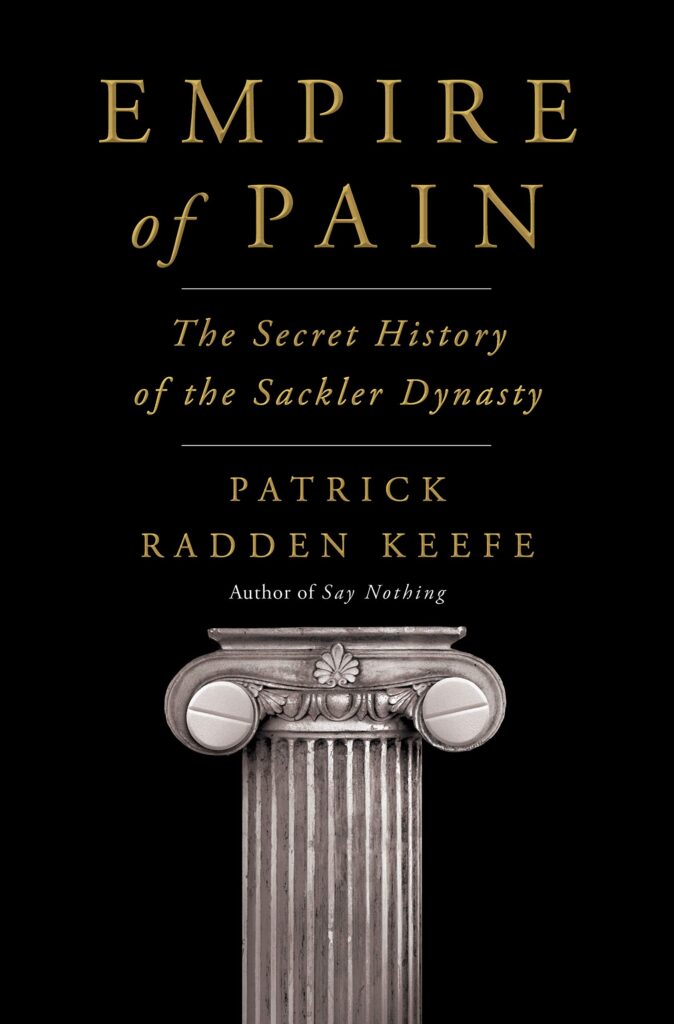
Keefe, Patrick Radden. Empire of Pain : the Secret History of the Sackler Dynasty . First edition., Doubleday, 2021.
A grand, devastating portrait of three generations of the Sackler family, famed for their philanthropy, whose fortune was built by Valium and whose reputation was destroyed by OxyContin, by the prize-winning, bestselling author of Say Nothing The Sackler name adorns the walls of many storied institutions—Harvard, the Metropolitan Museum of Art, Oxford, the Louvre. They are one of the richest families in the world, known for their lavish donations to the arts and the sciences. The source of the family fortune was vague, however, until it emerged that the Sacklers were responsible for making and marketing a blockbuster painkiller that was the catalyst for the opioid crisis. Empire of Pain begins with the story of three doctor brothers, Raymond, Mortimer and the incalculably energetic Arthur, who weathered the poverty of the Great Depression and appalling anti-Semitism. Working at a barbaric mental institution, Arthur saw a better way and conducted groundbreaking research into drug treatments. Arthur devised the marketing for Valium, and built the first great Sackler fortune. He purchased a drug manufacturer, Purdue Frederick, which would be run by Raymond and Mortimer. The brothers began collecting art, and wives, and grand residences in exotic locales. Their children and grandchildren grew up in luxury. Forty years later, Raymond’s son Richard ran the family-owned Purdue. The template Arthur Sackler created to sell Valium—co-opting doctors, influencing the FDA, downplaying the drug’s addictiveness—was employed to launch a far more potent product: OxyContin. The drug went on to generate some thirty-five billion dollars in revenue, and to launch a public health crisis in which hundreds of thousands would die. This is the saga of three generations of a single family and the mark they would leave on the world. Empire of Pain chronicles the multiple investigations of the Sacklers and their company, and the scorched-earth legal tactics that the family has used to evade accountability. It is a portrait of the excesses of America’s second Gilded Age, a study of impunity among the super elite and a relentless investigation of the naked greed and indifference to human suffering that built one of the world’s great fortunes.
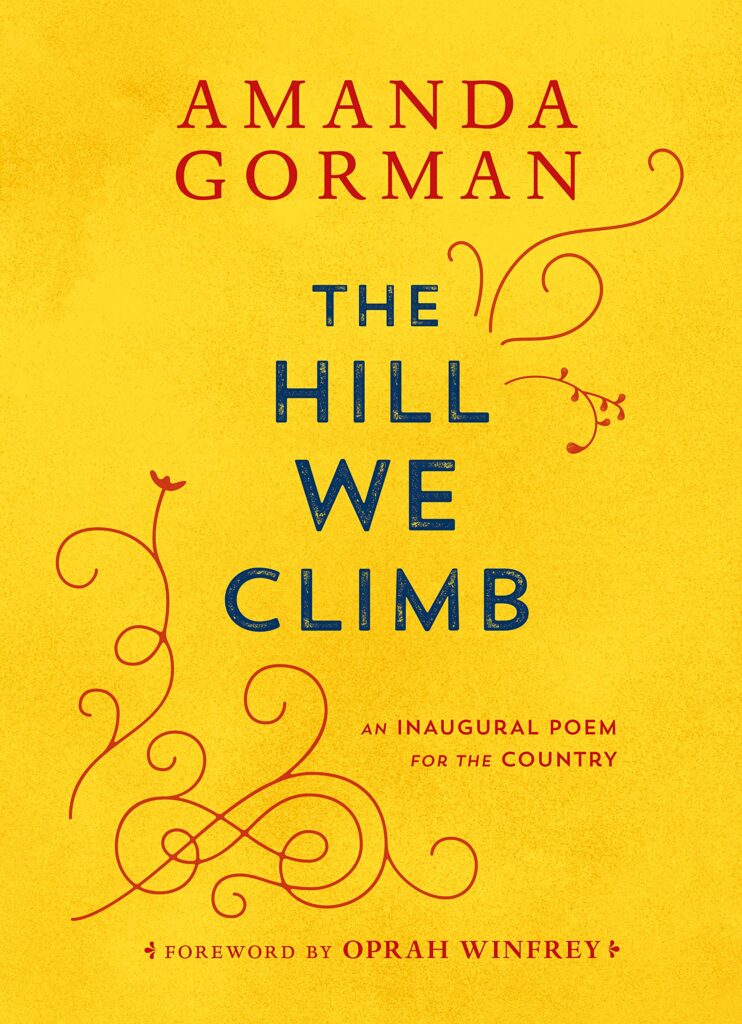
Gorman, Amanda, and Oprah Winfrey. The Hill We Climb : an Inaugural Poem for the Country . Viking, an imprint of Penguin Random House LLC, 2021.
Amanda Gorman became the sixth and youngest poet to deliver a poetry reading at a presidential inauguration. Taking the stage after the 46th president of the United States, Joe Biden, Gorman captivated the nation and brought hope to viewers around the globe with her call for unity and healing. Her poem “The Hill We Climb: An Inaugural Poem for the Country” can now be cherished in this special gift edition, perfect for any reader looking for some inspiration. Including an enduring foreword by Oprah Winfrey, this remarkable keepsake celebrates the promise of America and affirms the power of poetry.
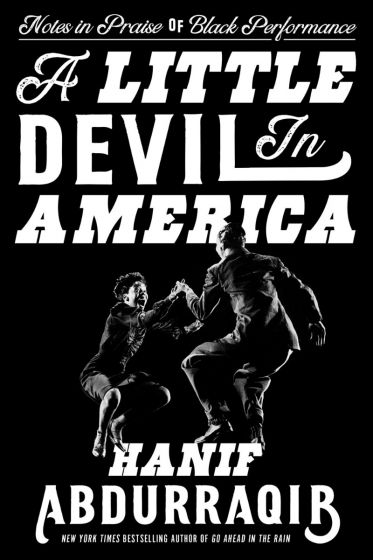
Abdurraqib, Hanif. A Little Devil in America : Notes in Praise of Black Performance . First edition., Random House, 2021.
At the March on Washington in 1963, Josephine Baker was fifty-seven years old, well beyond her most prolific days. But in her speech she was in a mood to consider her life, her legacy, her departure from the country she was now triumphantly returning to. “I was a devil in other countries, and I was a little devil in America, too,” she told the crowd. Inspired by these few words, Hanif Abdurraqib has written a profound and lasting reflection on how Black performance is inextricably woven into the fabric of American culture. Each moment in every performance he examines—whether it’s the twenty-seven seconds in “Gimme Shelter” in which Merry Clayton wails the words “rape, murder,” a schoolyard fistfight, a dance marathon, or the instant in a game of spades right after the cards are dealt—has layers of resonance in Black and white cultures, the politics of American empire, and Abdurraqib’s own personal history of love, grief, and performance. Abdurraqib writes prose brimming with jubilation and pain, infused with the lyricism and rhythm of the musicians he loves. With care and generosity, he explains the poignancy of performances big and small, each one feeling intensely familiar and vital, both timeless and desperately urgent. Filled with sharp insight, humor, and heart, A Little Devil in America exalts the Black performance that unfolds in specific moments in time and space—from midcentury Paris to the moon, and back down again to a cramped living room in Columbus, Ohio.
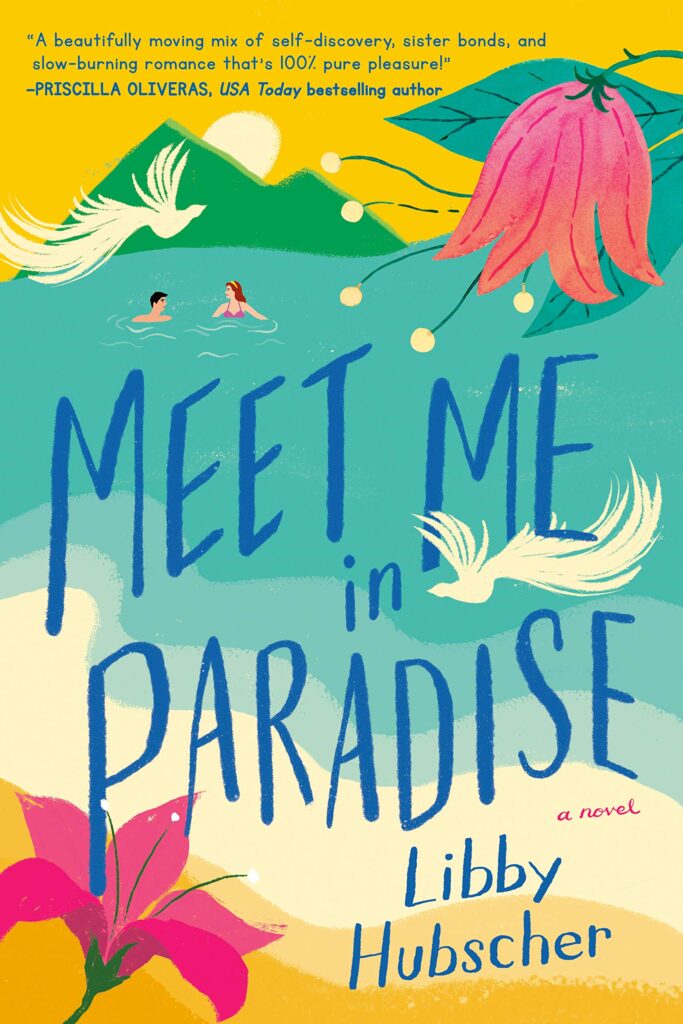
Hubscher, Libby. Meet Me in Paradise . First edition., Jove, 2021.
Marin Cole has never: Seen the ocean Climbed a mountain Taken a risk on love….But if her sister’s plan works, she just might do all three. Ever since her journalist mother died on assignment, Marin has played it safe, refusing to set foot outside the state of Tennessee. Her wild-child younger sister, Sadie, has trotted the globe as a photographer, living off of art and adrenaline. When Sadie returns from a tough assignment abroad and looks a little worse for wear, Marin reluctantly agrees to a sisters’spa weekend on the tropical island of Saba. But her lifelong fear of travel is affirmed when Sadie misses the flight, Marin’s luggage gets mixed up with another passenger’s, and an episode of turbulence sends her hurtling into the lap of Lucas Tsai, the handsome stranger who stole her sister’s seat. For the first time in a long time, Marin has to step outside of her comfort zone as she explores the island with Lucas and learns what she’s been missing out on. With each breathtaking new experience, Marin gets closer to her real self, the man she’s falling for, and the heart-wrenching truth about why she’s there in the first place.
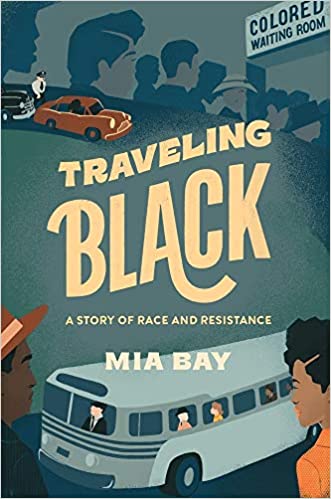
Bay, Mia. Traveling Black : a Story of Race and Resistance . The Belknap Press of Harvard University Press, 2021.
A riveting, character-rich account of racial segregation in America that reveals just how central travel restrictions were to the creation of Jim Crow laws–and why “traveling Black” has been at the heart of the quest for racial justice ever since. Why have white supremacists and civil rights activists been so focused on Black mobility? From Plessy v. Ferguson to #DrivingWhileBlack, African Americans have fought for over a century to move freely around the United States. Curious as to why so many cases contesting the doctrine of “separate but equal” involved trains and buses, Mia Bay went back to the sources with some basic questions: How did travel segregation begin? Why were so many of those who challenged it in court women? How did it move from one form of transport to another, and what was it like to be caught up in this web of contradictory rules? From stagecoaches, steamships, and trains to buses, cars, and planes, Traveling Black explores when, how, and why racial restrictions took shape and brilliantly portrays what it was like to live with them. Bay unearths troves of supporting evidence, rescuing forgotten stories of undaunted passengers who made it back home despite being insulted, stranded, re-routed, and ignored. Black travelers never stopped challenging these humiliations and insisting on justice in the courts. Traveling Black upends our understanding of Black resistance, documenting a sustained fight that falls outside the traditional boundaries of the Civil Rights Movement. A masterpiece of scholarly and human insight, this book helps explain why the long, unfinished journey to racial equality so often takes place on the road.
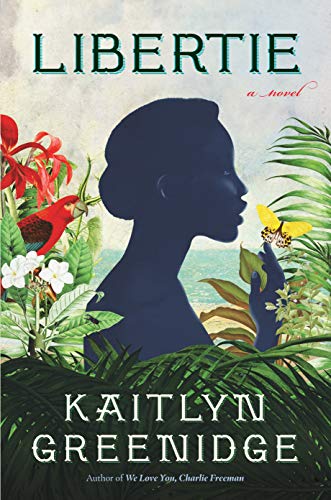
Greenidge, Kaitlyn. Libertie : a Novel . First Edition., Algonquin Books of Chapel Hill, 2021.
Coming of age in a free Black community in Reconstruction-era Brooklyn, Libertie Sampson is all too aware that her purposeful mother, a practicing physician, has a vision for their future together: Libertie is to go to medical school and practice alongside her. But Libertie, drawn more to music than science, feels stifled by her mother’s choices and is hungry for something else–is there really only one way to have an autonomous life? And she is constantly reminded that, unlike her light-skinned mother, Libertie will not be able to pass for white. When a young man from Haiti proposes to Libertie and promises she will be his equal on the island, she accepts, only to discover that she is still subordinate to him and all men. As she tries to parse what freedom actually means for a Black woman, Libertie struggles with where she might find it–for herself and for generations to come. Inspired by the life of one of the first Black female doctors in the United States and rich with historical detail, Kaitlyn Greenidge’s new and immersive novel will resonate with readers eager to understand our present through a deep, moving, and lyrical dive into our past.
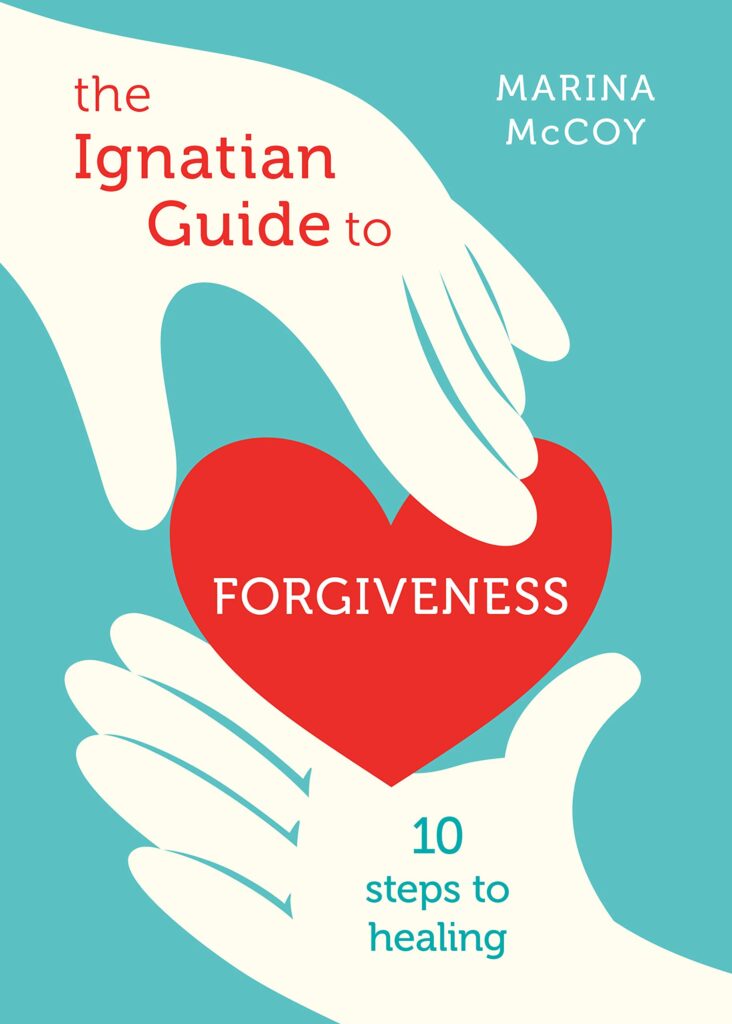
McCoy, Marina. The Ignatian Guide to Forgiveness : Ten Steps to Healing . Loyola Press, 2020.
Forgiveness is hard. But Jesus knows how much we need it. True forgiveness can be complicated because the pain of betrayal, loss, deception, and personal attack clings tightly to our emotions, memories, even our bodies. We may intend to forgive yet become stuck in our own mixed motives, others’ silence or anger, and the skewed stories we believe and tell about our lives. In The Ignatian Guide to Forgiveness, Marina McCoy delves into the principles of Ignatian spirituality and uses gentle honesty to lay out 10 steps toward forgiveness, including: Sort out true desires, Honor anger while deepening compassion, Make friends with time, Create a new story… and more. Each chapter offers stories, real-life steps to take, and a powerful prayer for healing Forgiveness is hard, but it’s also possible—with our “habits of mercy” and God’s abundant grace.
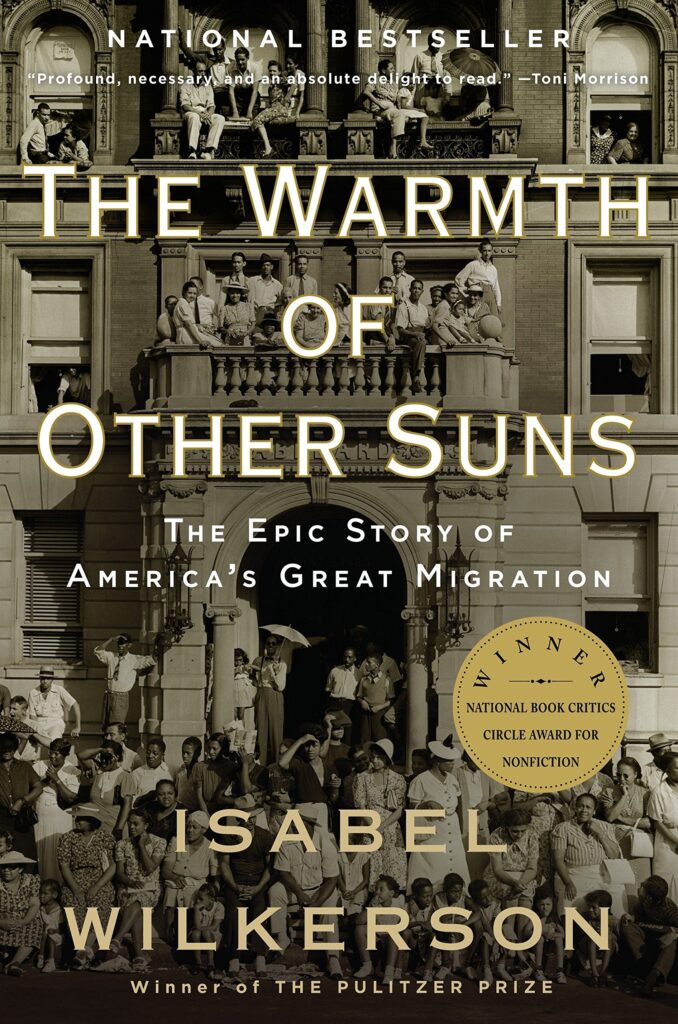
Wilkerson, Isabel. The Warmth of Other Suns: The Epic Story of America’s Great Migration. Knopf Doubleday Publishing Group, 2010.
From 1915 to 1970, this exodus of almost six million people changed the face of America. Wilkerson compares this epic migration to the migrations of other peoples in history. She interviewed more than a thousand people, and gained access to new data and official records, to write this definitive and vividly dramatic account of how these American journeys unfolded, altering our cities, our country, and ourselves. With stunning historical detail, Wilkerson tells this story through the lives of three unique individuals: Ida Mae Gladney, who in 1937 left sharecropping and prejudice in Mississippi for Chicago, where she achieved quiet blue-collar success and, in old age, voted for Barack Obama when he ran for an Illinois Senate seat; sharp and quick-tempered George Starling, who in 1945 fled Florida for Harlem, where he endangered his job fighting for civil rights, saw his family fall, and finally found peace in God; and Robert Foster, who left Louisiana in 1953 to pursue a medical career, the personal physician to Ray Charles as part of a glitteringly successful medical career, which allowed him to purchase a grand home where he often threw exuberant parties. Wilkerson brilliantly captures their first treacherous and exhausting cross-country trips by car and train and their new lives in colonies that grew into ghettos, as well as how they changed these cities with southern food, faith, and culture and improved them with discipline, drive, and hard work. Both a riveting microcosm and a major assessment, The Warmth of Other Suns is a bold, remarkable, and riveting work, a superb account of an “unrecognized immigration” within our own land. Through the breadth of its narrative, the beauty of the writing, the depth of its research, and the fullness of the people and lives portrayed herein, this book is destined to become a classic.
